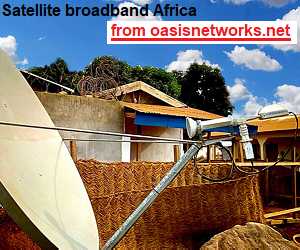| Home Login Register |
| Satellite Internet forum › iDirect Forum: hubs and terminals › SAT Bandwidth Usage |
|
Pages: 1
|
SAT Bandwidth Usage(Read 6422 times) |
|
Ex Member
Ex Member
★ |
May 27th, 2011 at 10:01am
|
| Back to top |
IP Logged
|
|
Anton
Member
★★ Offline Posts: 32 |
Reply #1 - May 27th, 2011 at 8:50pm
|
| Back to top |
The rich man is not the one who has, but the one who does not need.
IP Logged
|
|
bod
Member
★★ Offline Posts: 15 |
Reply #2 - Jun 3rd, 2011 at 4:45am
|
| Back to top |
IP Logged
|
|
Ex Member
Ex Member
★ |
Reply #3 - Jun 3rd, 2011 at 1:06pm
|
| Back to top |
IP Logged
|
|
dhrisht
Member
★★ Offline Posts: 12 |
Reply #4 - Mar 15th, 2012 at 5:09pm
|
| Back to top |
IP Logged
|
|
dhrisht
Member
★★ Offline Posts: 12 |
Reply #5 - Mar 15th, 2012 at 6:14pm
|
| Back to top |
IP Logged
|
|
Ex Member
Ex Member
|
Reply #6 - May 12th, 2012 at 6:26pm
|
| Back to top |
IP Logged
|
|
dot
Senior Member
★★★ Offline Posts: 118 |
Reply #7 - May 16th, 2012 at 9:16am
|
| Back to top |
IP Logged
|
|
Pages: 1
|
Email me: eric@satsig.net
Powered by YaBB 2.5.2!
YaBB Forum Software © 2000-. All Rights Reserved.
Disclaimer, Terms of Use and Privacy Forum User Agreement Forum rules Cookie policy.


